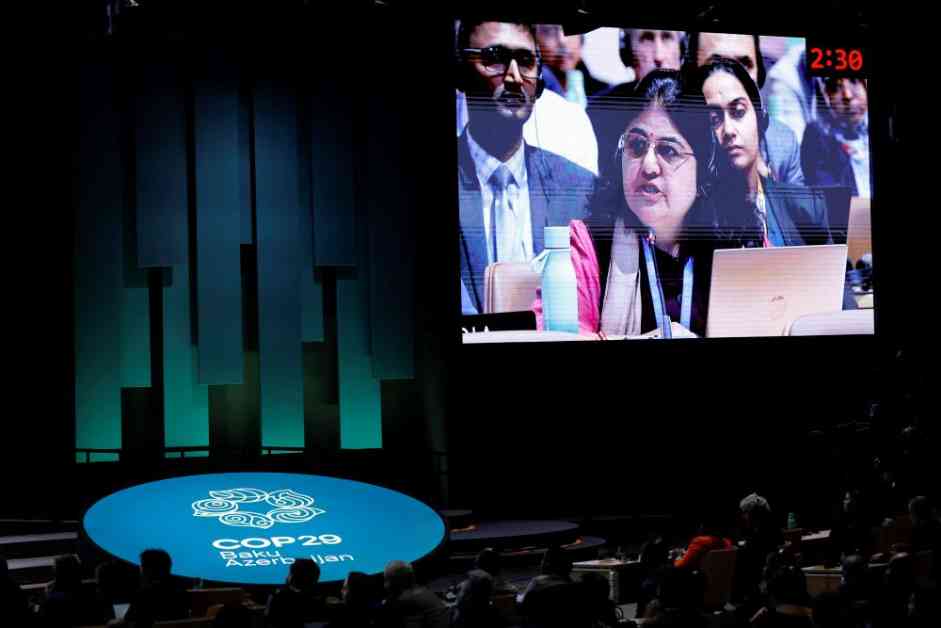India’s Bold Rejection of COP29 Finance Deal
India’s stance at COP29 has sent a powerful message to the global community about the urgency of climate action. As the conference concluded in the early hours of Sunday, India’s objection to the rushed approval of a new climate finance goal for 2026-2035 reverberated through the halls, highlighting the divide between rich and developing nations in the fight against climate change.
Championing the Global South
In a fiery speech, Chandni Raina, an advisor with India’s Department of Economic Affairs, voiced the concerns of the Global South, calling for “much higher ambition” from wealthy nations. Her impassioned plea underscored the challenges faced by developing countries in transitioning to sustainable, low-carbon pathways while maintaining economic growth.
Raina’s rejection of the $300 billion annual climate finance goal set by rich nations resonated with delegates from other developing countries, including Cuba, Nigeria, Malawi, and Bolivia. The disappointment and frustration expressed by these nations reflected a broader sentiment of inequality and unmet promises in the global climate finance landscape.
India’s role as a champion for the Global South was further emphasized by Sandeep Pai, director for research and strategy at Swaniti Global. Pai highlighted India’s call for rich nations to pledge $600 billion a year in grants, a stark contrast to the final deal that fell short of developing countries’ expectations.
Implications of the COP29 Finance Deal
The COP29 finance deal, characterized as “grim” by Pai, raised concerns about the lack of substantial funding for climate action in developing countries. With uncertainties surrounding the financial commitments of major emitters like the United States, the burden of financing climate initiatives may fall disproportionately on poorer nations, exacerbating the existing divide.
As India and other developing countries navigate the evolving landscape of climate finance, the implications of the COP29 deal could manifest in weaker national climate plans (NDCs) and diminished ambitions to combat climate change. Sanjay Vashist, director of Climate Action Network South Asia, warned that the shortfall in finance may hamper developing countries’ ability to translate their climate goals into actionable plans.
The resounding objection raised by India at COP29 serves as a poignant reminder that inclusive and equitable climate action requires genuine cooperation and commitment from all nations. As the global community grapples with the urgency of addressing climate change, India’s bold stance underscores the critical need for solidarity and shared responsibility in securing a sustainable future for all.














